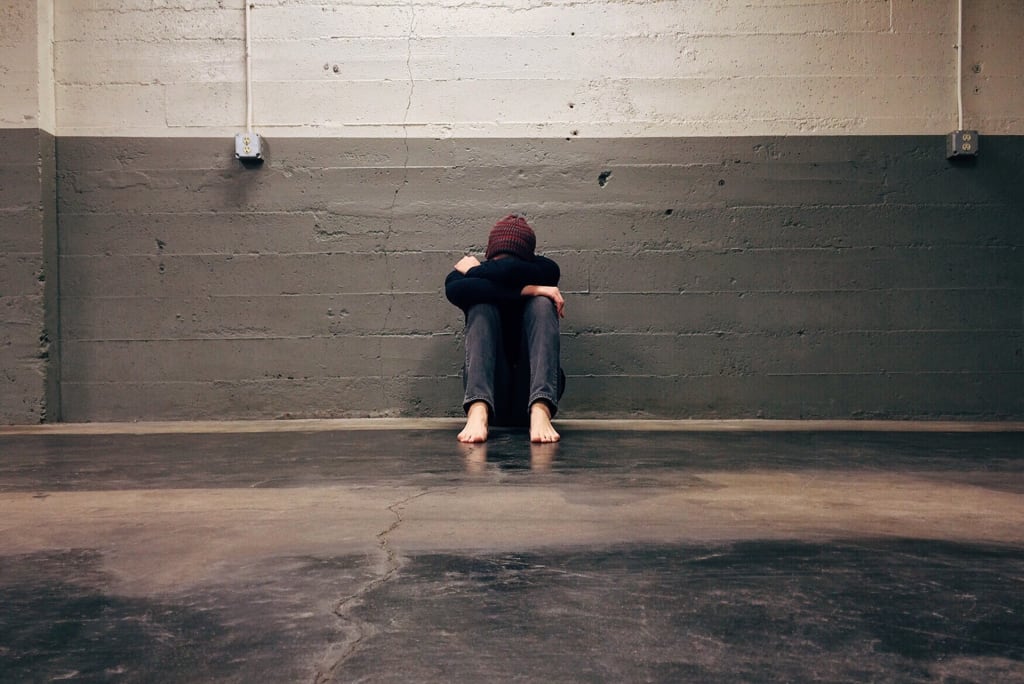How to reduce stress and anxiety naturally
Unlock Your Inner Zen With These Tips

If you're struggling to manage stress levels in your work, relationships, or daily life, you're not alone. Many people experience these difficulties, often leading to feelings of overwhelm and anxiety. While medication and therapy can be effective solutions, there are also natural remedies that can help alleviate these feelings.
In this article, we’ll explore some effective and practical ways that can help you find calm and peace in your daily life. So, if you're ready to say goodbye to stress and anxiety, keep reading!
1. Practice Mindfulness

Mindfulness is a mental practice where you focus your awareness on the present moment while calmly acknowledging and accepting your feelings, thoughts, and bodily sensations. By focusing on the present moment, you are able to let go of worries about the future and regrets about the past which often lead to stress and anxiety. One study found that mindfulness-based therapy was associated with reduced symptoms of anxiety and depression in participants.
One of the main ways to practice mindfulness is by deep breathing. This can be done anywhere at any time, and for as long as you like — no special equipment or training needed. You start by sitting or lying (or standing even though it’s not the most ideal) in a comfortable position and focus your attention on your breath. When your mind wanders to other thoughts (eg. what am I going to have for lunch later today?, what was that conversation I had with my boss yesterday?, etc.), you re-focus your attention back to your breath, and keep repeating the cycle.
You can also practice other forms of meditation such as journaling, going for a nature walk, and doing some yoga.
2. Get enough sleep

Sleep can easily fall to the bottom of your priorities amidst busy schedules, bad habits such as staying up late to watch television, and a lack of awareness about the importance of sleep. If you want to eliminate or prevent stress and anxiety altogether, then getting enough sleep should be a top-most priority.
This sounds too easy to be true right? Take it from a 2019 study that revealed that sleep deprivation increased anxiety levels by 27%. Now you may be wondering just how many hours of sleep is enough so you aren’t sleep deprived. As adults, the recommended sleep duration is a minimum of seven hours.
How long you sleep is not enough, quality matters too. Practicing good sleep hygiene helps to improve the quality of your sleep. This includes creating a regular sleep schedule, avoiding caffeine and alcohol before bedtime, creating a sleep-conducive environment (such as keeping the room dark and quiet), and avoiding screens before bed.
3. Exercise regularly

When you exercise, your body releases endorphins, which are feel-good chemicals that boost your mood and reduce feelings of stress and anxiety. Research has shown that people who exercise regularly experience lower levels of stress and anxiety, and an overall better mood.
While doing home or gym workouts is great, it can sometimes feel very intimidating or difficult to stick to. The best way is to start small by making an intentional effort to engage in the little activities you enjoy. This could be walking, jogging, cycling, swimming, dancing, or gardening. Starting with an activity you love to do increases the chances that you’ll stay consistent long enough to reap the full benefits.
For best results, it’s recommended to do these activities for at least 30 minutes for three to five days a week. You don’t have to engage in a physical activity or workout for 30 minutes straight. You can break them up into smaller sessions (eg. three 10-minute sessions).
4. Eat a healthy diet

When you eat a balanced and nutritious diet, your body gets the vitamins and minerals it needs to function optimally, which helps to minimize feelings of stress and anxiety. Here are some easy tips on getting started with a healthy diet:
- Avoid processed foods. They are often high in sugar, unhealthy fats, and artificial ingredients, all of which can contribute in one way or another to feelings of stress and anxiety.
- Limit caffeine and alcohol intake. Yes, a cup of coffee or glass of wine is enjoyable but too much of it can contribute to feelings of stress and anxiety. Consider replacing this with a cup of water or herbal tea.
- Eat a balanced diet. A balanced diet includes a variety of fruits, vegetables, whole grains, lean proteins, and healthy fats. Eating these nutritious foods will boost your energy levels, reduce feelings of stress and anxiety, and improve your overall health and well-being.
5. Limit your screen time

You don’t realize how the minutes turn into hours when you mindlessly scroll through social media or binge-watch TV shows. You probably don’t even realize how social media is the first thing you check every single morning. While these activities are enjoyable and relaxing in the moment, too much of it contribute to increased feelings of stress and anxiety.
Here are some tips to limit your screen time:
- Use an app to track your screen time to see where you spend the most time.
- Turn off notifications on your phone and computer from apps that take most of your time.
- Designate certain areas of your home as phone-free zones (eg. your bedroom).
- Avoid using your phone right after you wake up and just before you go to bed.
By setting boundaries around your screen time, you can create space for other relaxing activities that improve your mood and are beneficial for you in the long term. Some of these include reading a book, going for a walk, or practicing yoga.
Conclusion
Stress and anxiety can be incredibly overwhelming, and finding ways to cope can feel like an impossible task. Thankfully, the natural tips shared in this article can help you get started. If you stick with them for the next 30 days, you'll definitely start to experience the difference.
Read my previous article here:





Comments
There are no comments for this story
Be the first to respond and start the conversation.